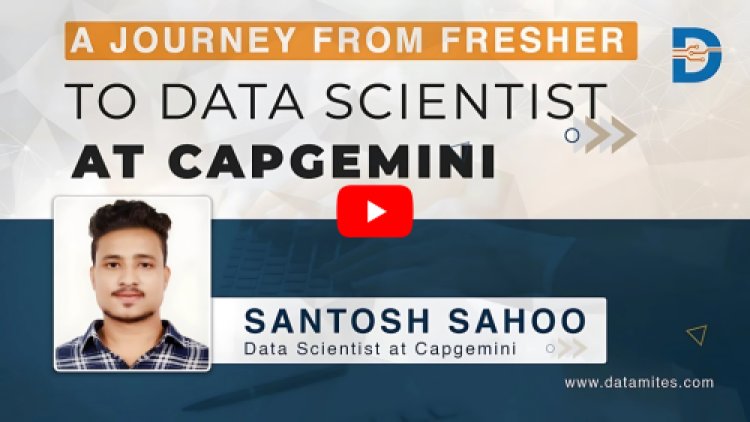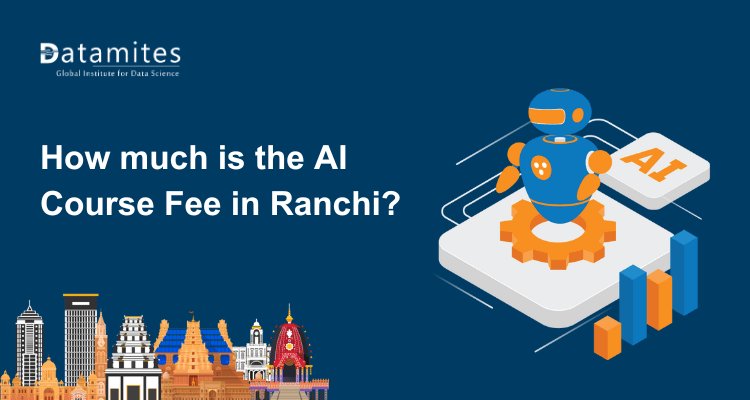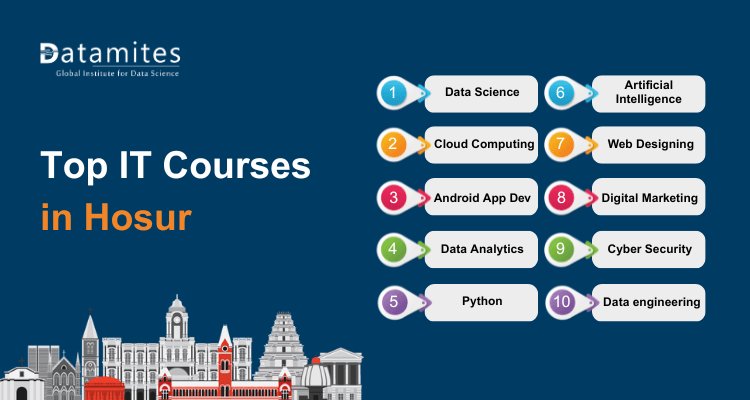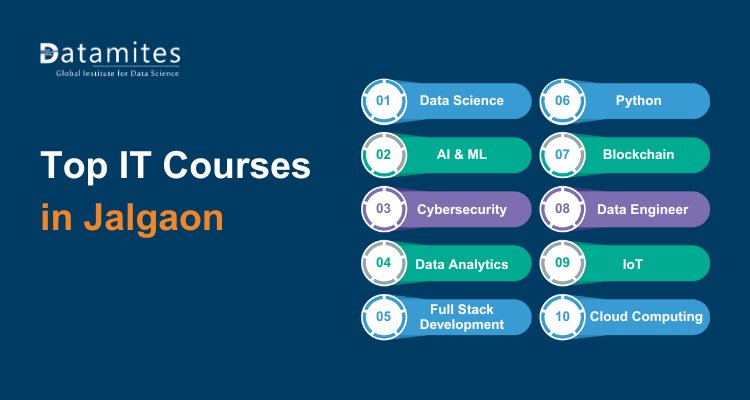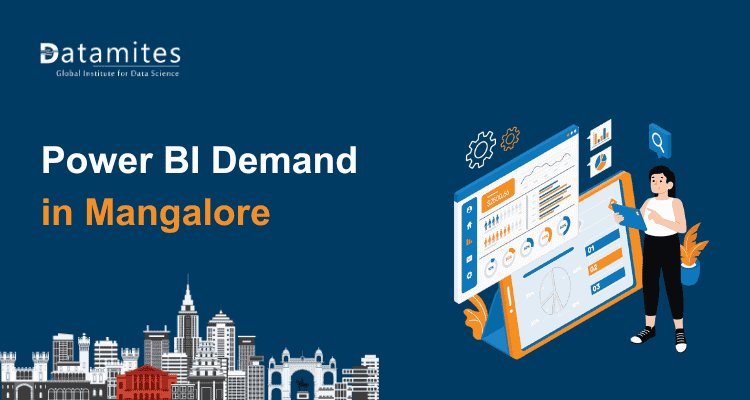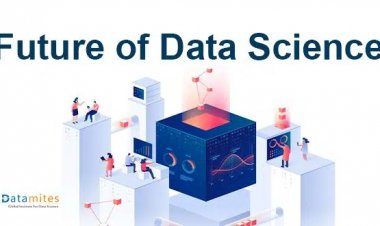How to Transition into a Data Science Career from a Non-Technical Background
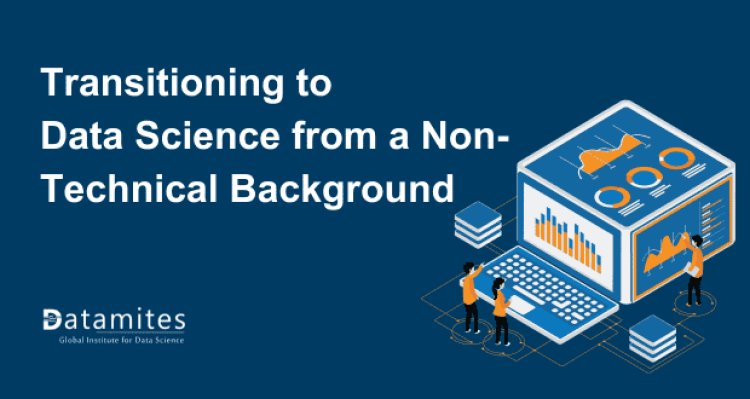
In today's rapidly evolving job market, data science has emerged as one of the most sought-after fields. According to the U.S. Bureau of Labor Statistics, data science jobs are expected to grow by 36% by 2031, significantly outpacing the average for other professions. As more industries adopt data-driven strategies, the need for data scientists is growing rapidly. However, many people mistakenly believe that entering the field demands an extensive technical background, which isn't always the case.
In this post, we’ll explore how individuals from non-technical backgrounds can effectively pivot into data science. Whether your experience lies in marketing, sales, journalism, or another field, this guide will show you how to harness your existing skill set while building the technical knowledge needed to excel in the data science domain. Let’s break down the step-by-step journey of making this rewarding career shift.
Understanding Data Science: Beyond the Technical Jargon
Data science is frequently mistaken as a field reserved solely for tech specialists, but in reality, it’s a multifaceted discipline that blends statistical analysis, coding skills, and business insight.
At its essence, data science revolves around gathering, processing, analyzing, and interpreting data to address challenges and guide decision-making. While technical skills like coding and algorithms are fundamental, many data science positions emphasize converting data-driven insights into practical business strategies.
Different Data Science Roles
The field of data science includes a variety of roles, each with its own specific duties and areas of focus.
Data Analyst: The primary role of a Data Analyst involves analyzing data to generate actionable business insights. While a foundational understanding of technical concepts is beneficial, strong communication and analytical skills are paramount. In terms of compensation, a Data Analyst can expect to earn approximately ₹6,50,000 annually in India, $84,309 in the United States, and £38,098 in London, UK.
Data Engineer: This position centers on the development and upkeep of data pipelines, emphasizing a technical approach that includes coding and data architecture. The average annual salary for a Data Engineer is estimated at £51,007 in London, approximately $105,033 in the US, and ₹9,15,000 in India.
Data Scientist: Combines advanced technical skills with analytical capabilities to develop models and solutions that drive decision-making. The average annual salary for a Data Scientist is approximately ₹13,00,000 in India, £54,026 in London, UK, and $115,398 in the United States.
Business Analyst: A Business Analyst is akin to a data analyst but places greater emphasis on leveraging data to drive business results. The projected annual compensation for this role is approximately $92,454 in the United States, £46,000 in London, UK, and ₹8,00,000 in India.
Not every data science position demands extensive technical knowledge. In many cases, soft skills like problem-solving, effective communication, and critical thinking hold equal importance, particularly when it comes to translating data insights for business leaders.
Refer these articles:
- Data Science vs Business Intelligence
- Data Science Challenges and How to Overcome Them
- How to Learn Data Science
Key Transferable Skills for Data Science
One of the most common misconceptions about data science is that only people with a background in programming or engineering can succeed. In reality, many of the skills you’ve honed in your non-technical career are highly transferable.
Your Current Skill Set
Here are some essential non-technical skills that you might already have, which are crucial in the field of data science:
- Communication Skills: Effectively communicating data-driven insights to stakeholders is essential for success. Data without interpretation is useless, so your ability to convey complex ideas in simple terms is a huge advantage.
- Business Understanding: Having industry expertise can greatly enhance your capabilities in data science. If you come from a background in business, marketing, or sales, you possess valuable insights that can shape and inform data-driven strategies within your sector.
- Project Management: Data science projects typically demand meticulous organization, adherence to deadlines, and efficient resource management. Having experience in project management can significantly enhance your ability to tackle these challenges successfully.
Case Study: A Successful Transition
Imagine an individual who shifted their career from marketing to data science. After spending several years in marketing, they decided to enhance their skills by enrolling in a data science course that concentrated on data analysis and consumer behavior. By merging their marketing knowledge with the technical skills they gained, they were able to create predictive models that analyze customer trends. Today, this person works as a data scientist at a marketing firm, demonstrating how a background outside of traditional technical fields can be a valuable advantage in the realm of data science.
Developing Core Data Science Skills
Although your non-technical skills form a solid base, it’s crucial to cultivate fundamental data science competencies. These encompass mathematics, programming, and machine learning.
Key Focus Areas
- Mathematics & Statistics: Grasping the fundamentals of probability, statistics, and linear algebra is essential for effective data analysis and model development. A solid understanding of these core concepts will form the foundation of your work in data science.
- Programming: Python and R rank among the most popular programming languages in the field of data science. They provide powerful libraries such as Pandas and NumPy for data manipulation, along with Scikit-learn for implementing machine learning algorithms.
- Data Visualization: Tools such as Tableau, Power BI, and Matplotlib play a crucial role in visualizing data insights, making it easier for decision-makers to grasp and act on information effectively.
- Machine Learning Basics: Understanding the difference between supervised and unsupervised learning can help you grasp how models are built to predict outcomes or discover patterns.
Recommended Learning Resources
- Enroll in a Structured Course: Explore a data science training courses that aligns with your availability, keeping in mind flexible options offered by online platforms.
- Self-Paced Learning: Use resources that allow you to learn at your own speed, ensuring you grasp concepts before moving on.
- Practice, Practice, Practice: Get involved in practical projects, participate in Kaggle competitions, or contribute to open-source initiatives to put your skills into practice.
Gaining Practical Experience in Data Science
Moving into data science involves more than just understanding theoretical concepts. Acquiring practical experience is essential for boosting your confidence and demonstrating your abilities.
1. Start with Small Projects
Taking on small projects is a fantastic way to put your knowledge into practice. Here are some project ideas:
- Predict Customer Churn: Examine customer data to uncover trends associated with churn and create a predictive model to anticipate future churn behavior.
- Sales Trend Analysis: Use datasets from retail stores to identify trends over time, which can aid in inventory management and sales forecasting.
- Sentiment Analysis on Product Reviews: Gather product reviews from e-commerce sites and analyze sentiments using natural language processing (NLP) techniques.
2. Build Your Portfolio
A strong portfolio can significantly enhance your visibility to potential employers. Consider these strategies:
- GitHub: Upload your code, documentation, and project reports. Ensure your repositories are well-organized and include a README file explaining each project.
- LinkedIn: Share your project insights, achievements, and articles related to data science to engage with your professional network.
- Personal Website: Create a website to host your portfolio, showcasing projects, blog posts, and your resume. This can act as a central point for showcasing your professional identity.
Additionally, consider joining hackathons, participating in data science meetups, or contributing to open-source projects. Networking within these communities can open doors to mentorship and job opportunities.
Refer these articles:
- What is Certified Data Scientist Course
- Data Science Career Scope in India
- How to Become A Data Scientist
Navigating a Career Transition to Data Science
Making the shift to data science from a non-technical background requires significant time and dedication. However, there are strategies to make the journey smoother.
Part-time Learning
Many professionals opt to balance their current job with part-time study. Enrolling in a data science course or attending workshops can help you learn while still earning a paycheck. You might also explore hybrid roles, such as data analyst positions, which require a mix of business acumen and technical skills.
Networking and Leveraging Your Background
Utilize LinkedIn to network with data professionals, participate in industry conferences, and engage in online communities. Remember, your non-technical background can be a unique advantage in roles that require domain expertise, such as business intelligence or marketing analytics.
Earning Certifications and Further Education in Data Science
Education is crucial in establishing credibility and expertise in data science. While a formal degree can provide a comprehensive understanding of the field, it is not the only pathway to success. The rapidly evolving nature of data science necessitates ongoing learning, and there are multiple avenues to gain knowledge and skills.
Certifications vs. Degrees
For many professionals, pursuing short-term certifications can be more advantageous than committing to a full degree program.
- Certifications: Options like the Google Data Analytics and IBM Data Science Professional Certificate offer foundational knowledge and skills that are industry-recognized. These programs typically require less time and financial investment compared to traditional degrees, making them accessible to a wider audience.
- Boot Camps: Intensive training programs or boot camps focus on practical skills and often culminate in hands-on projects. They provide a fast-track approach to learning key data science concepts, tools, and techniques.
Internships and Apprenticeships
After obtaining certifications, aspiring data scientists should consider internships or volunteer opportunities. These experiences are incredibly valuable for a variety of reasons.
- Real-World Application: Internships provide an opportunity to translate theoretical concepts into real-world applications, deepening your comprehension of data science processes.
- Networking Opportunities: Engaging in internships helps build professional networks, which can be crucial for job searches and career advancement.
- Skill Development: Working on data-related projects under the guidance of experienced professionals helps in honing technical skills and learning industry best practices.
Refer these articles:
- Data Science Course Fee in India
- Data Science Course Fee in Bangalore
- Data Science Course Fee in Hyderabad
Overcoming Challenges in Data Science
Overcoming challenges in data science requires a mix of technical skills, strategic thinking, and effective communication. Here are some common challenges faced in the field and strategies to address them:
Imposter Syndrome
Many professionals transitioning into data science from non-technical backgrounds experience imposter syndrome. They may feel "too late" or worry about not having the right skills. However, remember that every data scientist was once a beginner. To conquer self-doubt, you must believe in your capacity to learn and evolve.
Staying Motivated
To maintain your motivation while learning, establish small, attainable objectives. Track your progress and celebrate milestones, whether it’s completing your first project or earning a new certification. Also, embrace a mindset of continuous learning, since the field of data science is always advancing.
Transitioning into data science from a non-technical background is entirely achievable. By identifying transferable skills, developing core competencies, and gaining practical experience, you can embark on a successful data science career. Begin with small steps, maintain consistency, and embrace the leap—your adventure in data science is only just starting!
At DataMites Institute, we are proud to be a leading educational platform dedicated to equipping aspiring data professionals with the skills needed to thrive in today’s data-driven landscape. Our Certified Data Scientist Course, meticulously crafted by industry experts, ensures that students not only learn theoretical concepts but also gain invaluable practical, hands-on experience.
We are committed to empowering individuals across India, with our courses available in key cities such as Bangalore, Pune, Chennai, Hyderabad, Ahmedabad, Mumbai, Coimbatore, and more. Our globally recognized certification programs, accredited by IABAC and NASSCOM FutureSkills, significantly enhance career opportunities for our graduates.
At DataMites, we focus on real-world applications, providing mentoring and fostering a supportive learning environment. Our objective is to equip learners with the skills needed to thrive in the ever-evolving realm of data analytics. Join us and embark on a journey to unleash your potential in the thrilling realm of data science!
Transition into Data Scientist from Applied Genetics
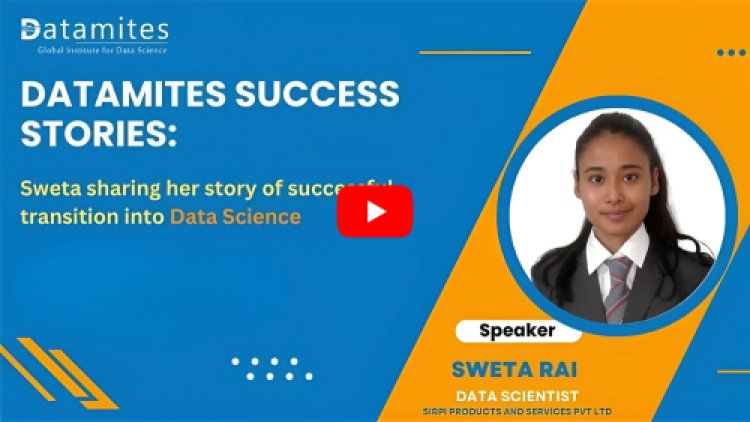
From Computational Biology to Data Scientist
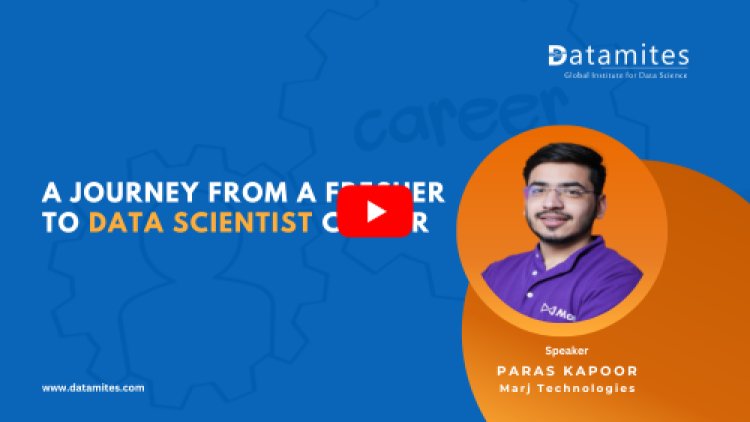
From Non - Technical to Data Scientist
